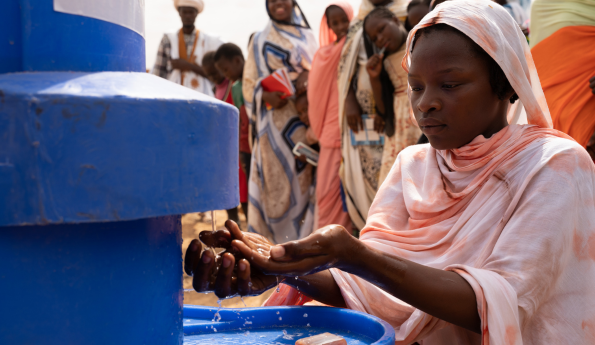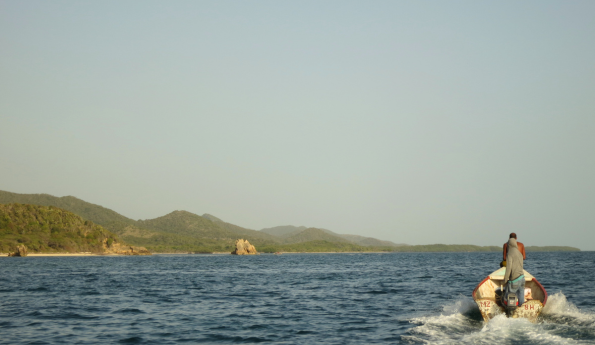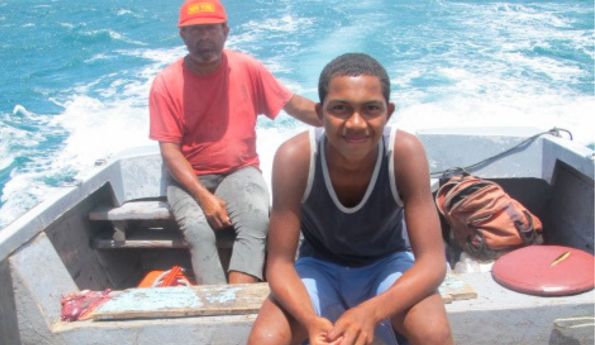Amid the pristine white sand beaches and tropical beauty of the Dominican Republic lies a small island nation increasingly at risk of climate catastrophe. Counterpart’s Dominican Environmental Education Program (DEEP) seeks to ignite a cultural transformation among Dominican youth who are dedicated to protecting the coastal marine ecosystem. By promoting environmental stewardship, the program contributes to creating a sustainable future for the Dominican Republic.
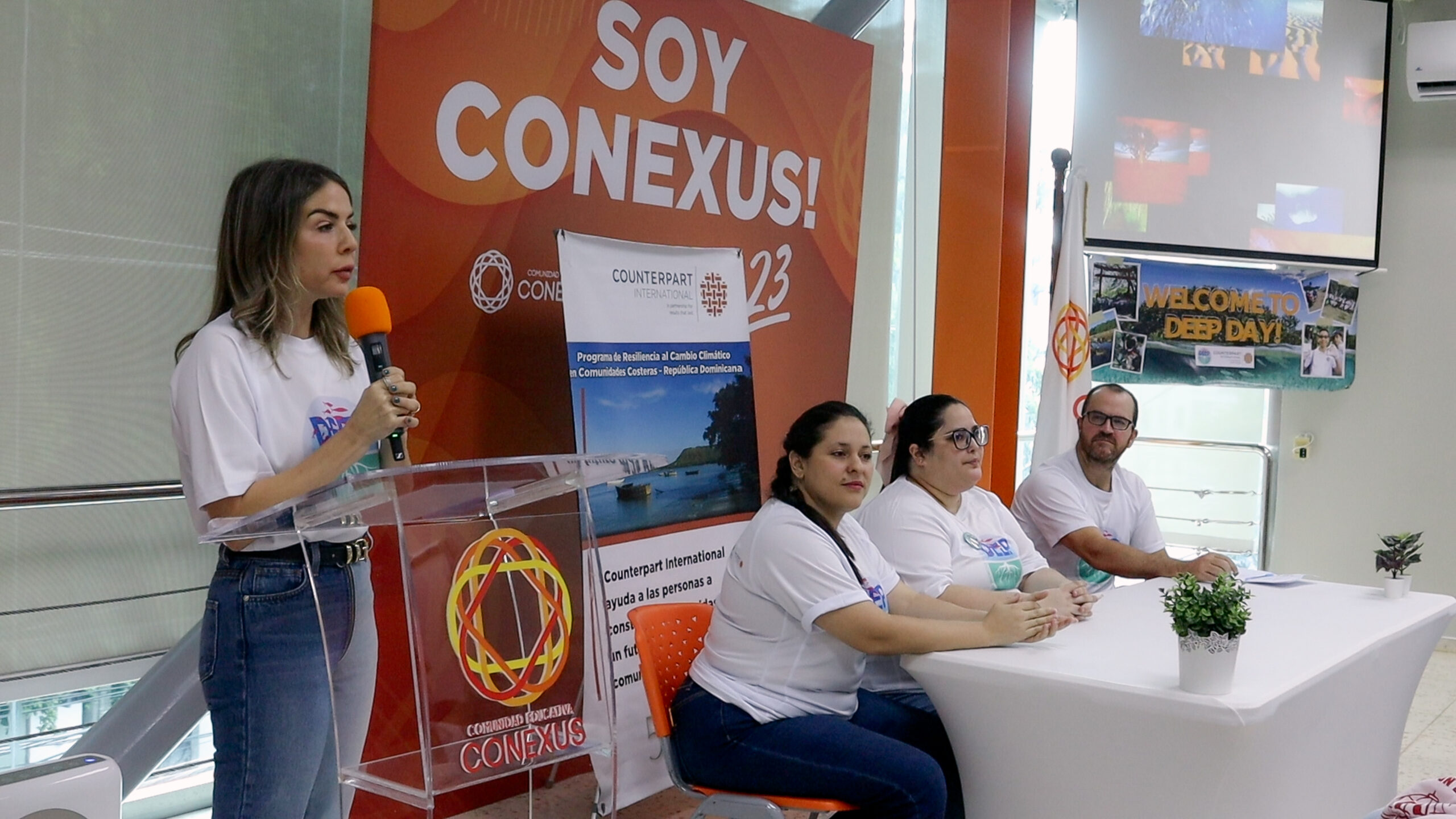
Patricia Abreu, Counterpart’s country representative for the Dominican Republic, speaks during the opening ceremony of DEEP Day.
These efforts are showcased each year when Counterpart hosts DEEP Day, a daylong event that brings together more than 300 participants, including students, teachers, government officials, civil society organizations, and local partners such as AgroFrontera, Fundemar, and Grupo Punta Cana Foundation. Funded by the Frohring Foundation, the DEEP program began in 2015, working with local schools to promote environmental sciences among students and teachers while also creating opportunities for collaboration with environmental organizations in the Dominican Republic.
At this year’s DEEP Day, held on October 14, 2023, students from five schools presented their research projects. The aim of the interactive presentations was to foster environmental exploration and awaken the curiosity of high school students to learn more about marine ecosystems and natural resource management. Through the DEEP program, the high school students are paired with older, college-aged mentors—called near-peer mentors—who work with the students to conduct their research on various environmental challenges and find possible solutions.
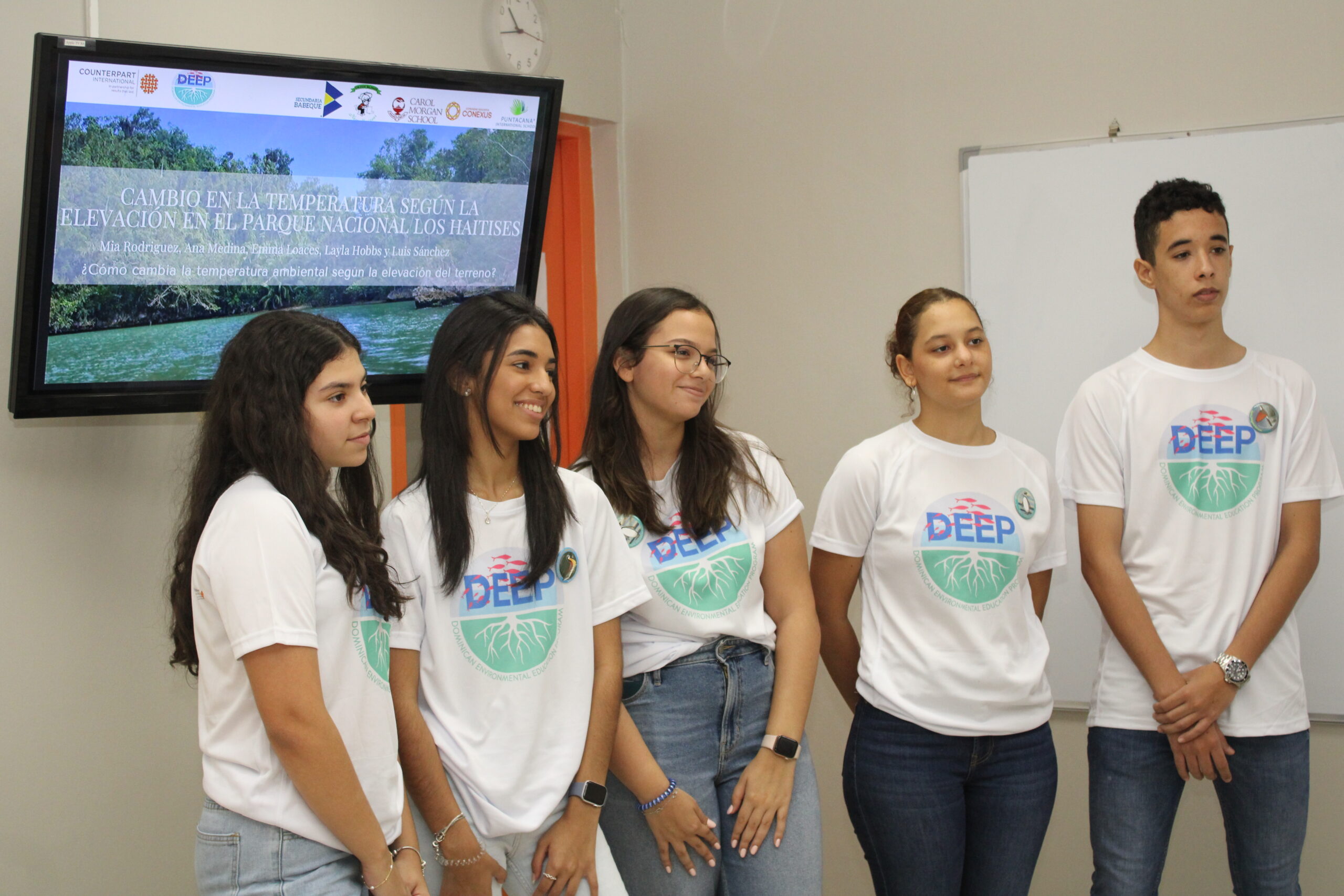
The students gave 10-minute presentations on their research topics following by a question and answer portion.
Centro Educativo Conexus, a local partner that joined the program this year, hosted the event with Punta Cana International School. Secundarai Babeque, New Horizon, and Carol Morgan schools—founding members of DEEP—also attended.
The DEEP Day event fostered collaboration between students and experts in the environmental science field. Concrete opportunities were identified to improve and integrate new partners and schools, while several research subjects were identified by the schools and partners that can be replicated at the national level. The foundation was laid for future collaborative projects, including participation from the Ministry of Environment and new schools.
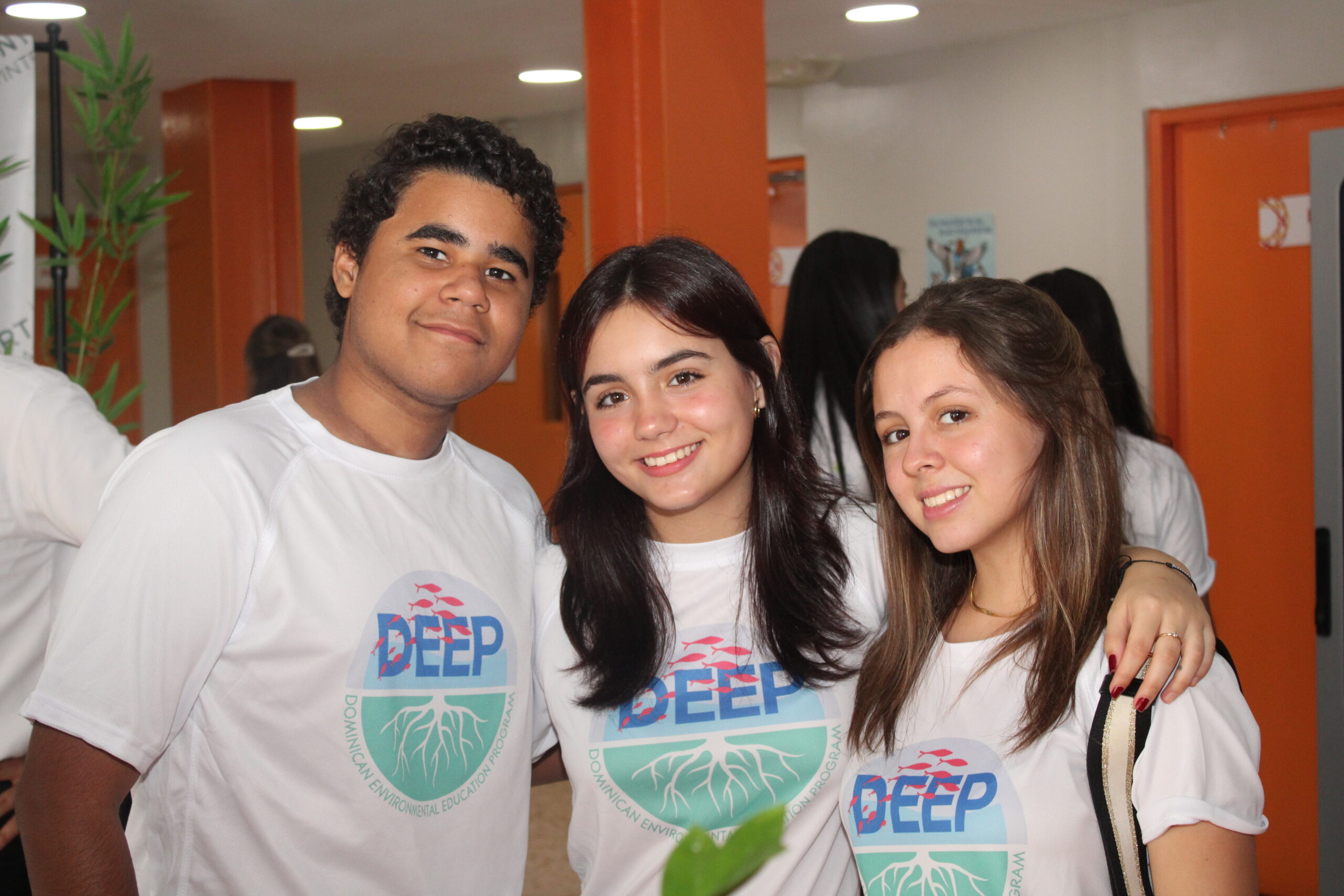
High school students participating in the DEEP program are encouraged to explore environmental science as a potential career path.
By encouraging young people to explore their natural environment and conduct research intended to restore and conserve coastal marine ecosystems, the program is laying the foundation for a sustainable future led by the next generation of Dominican youth.




